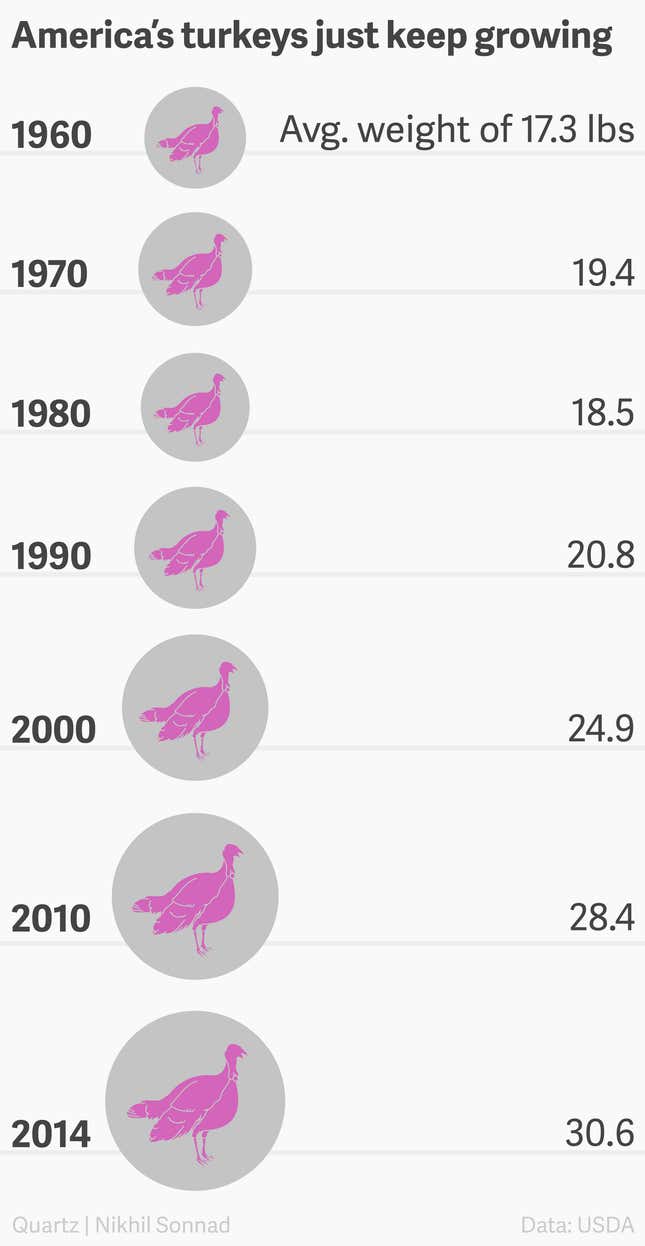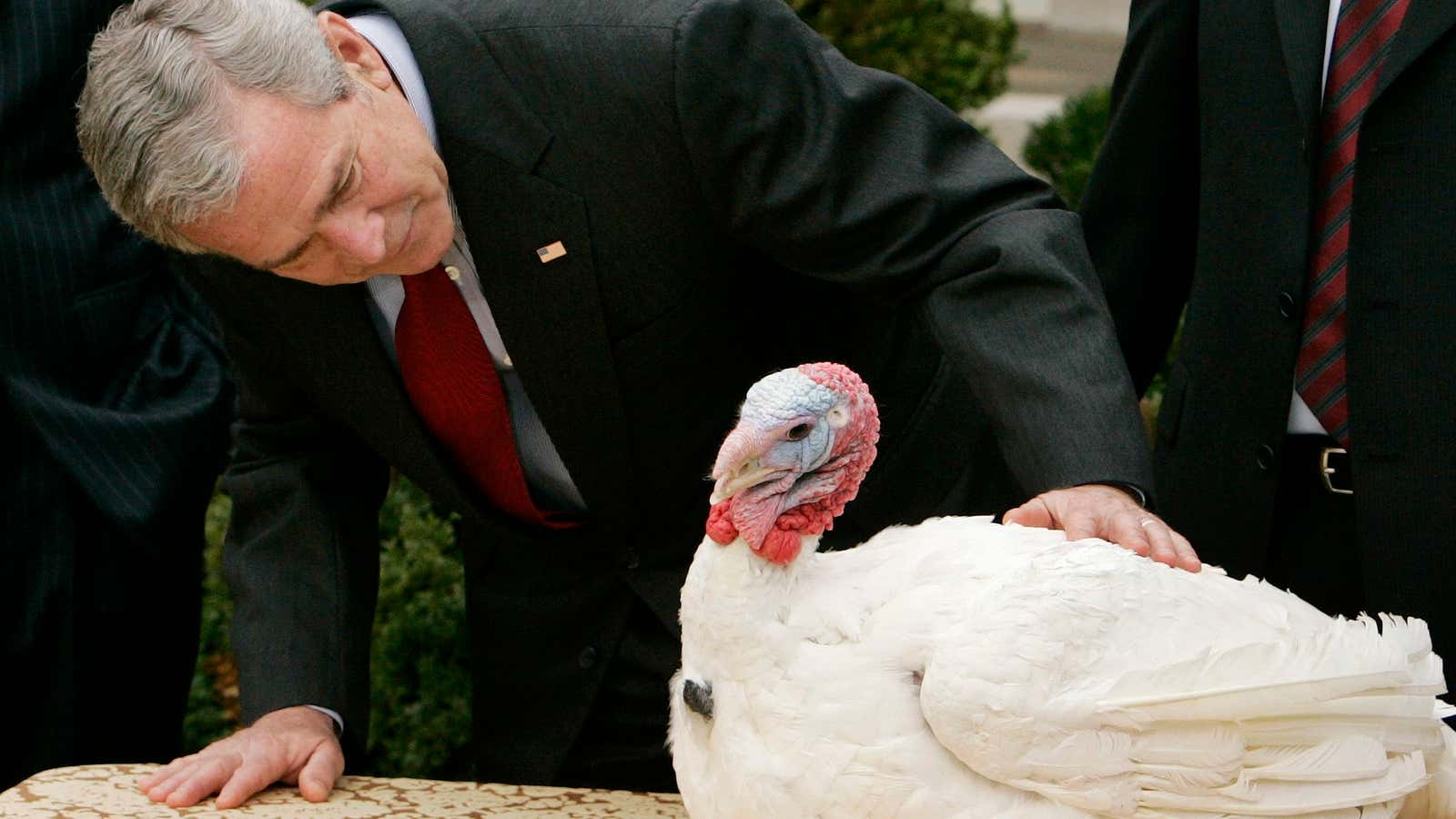Thanksgiving, the most food-focused of American holidays, provides a hearty occasion for this reminder: The dominant fruits, vegetables, and animals in modern farming are products of highly unnatural selection. Consider corn, which evolved from a fairly small, hard-to-eat plant called teosinte into maize, which European settlers and subsequent generations of farmers tweaked and perfected into the starchier, less-colorful “sweet corn” sold in supermarkets today. Consider the variety of apple known as the Red Delicious.
Or consider the turkey.

While the number of individual turkeys raised and slaughtered in the US each year is declining, total production of turkey meat has remained stable, pound-wise (PDF). That’s because the average turkey comes with a lot more meat on its bones today than ever before.
The standard commercial turkey is a breed called the broad-breasted white, an apt name for a bird specifically bred to have large breasts full of lean, white meat, which many modern consumers prefer to the dark, stringy, fatty meat from other turkey parts. To call these turkeys “top-heavy” would not be inaccurate; neither is it factually wrong to call them “pathologically obese,” a term favored by animal welfare groups.
They grow twice as fast today as they did in 1966 (PDF). They can’t easily walk, and they can’t mate, so most of the 235 million US turkeys raised in 2014 were brought into existence by artificial insemination—which the industry isn’t ashamed about (PDF).
Whether consumers should be ashamed about modern turkey production is a matter of debate, one we can’t sincerely advise discussing over Thanksgiving dinner—unless, that is, you’re serving a heritage turkey instead of a Butterball and need to explain to guests why there isn’t enough white meat to go around.
A more interesting question, though it’s another unsavory one, is whether the modern turkey is a GMO (genetically modified organism). Most scientists would say no, it’s not; selective breeding and genetic engineering mustn’t be conflated. Today’s turkeys, just like Belgian blue cows and Labradoodles, are products of the former. But conventionally raised turkeys, including some heritage ones, are fed GMO corn. Though it seems like splitting hairs, one of the pre-eminent, family-owned poultry farms in the US sells “organic,” “non-GMO,” and “heritage” turkeys separately.
